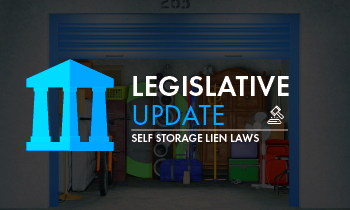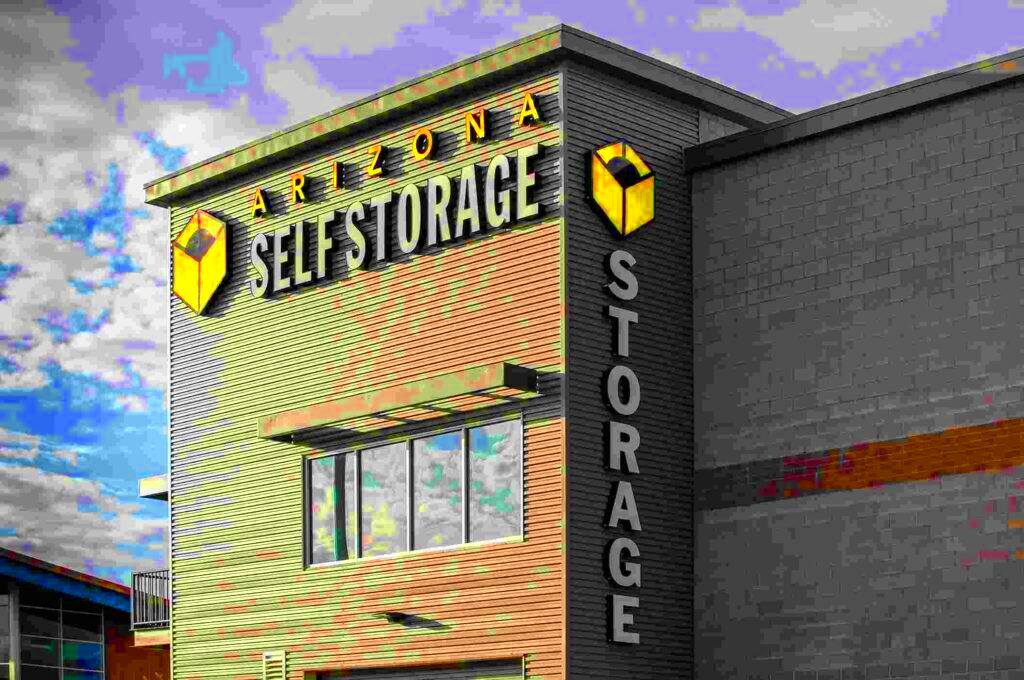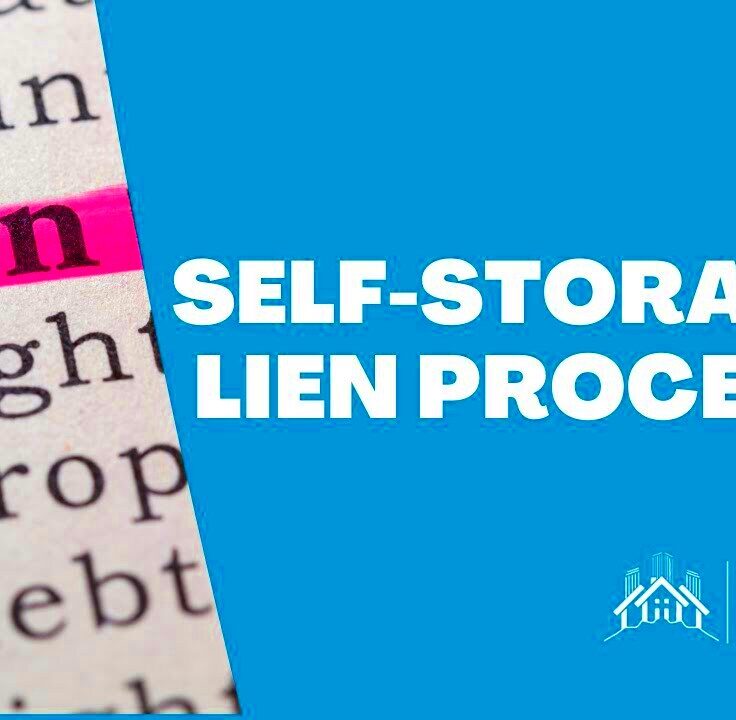Self-Storage Lien Enforcement in Arizona
Self-storage facilities provide individuals and businesses with a convenient way to store their belongings. However, what happens when a customer fails to pay for their storage unit? In Arizona, self-storage lien enforcement comes into play. This process allows storage owners to reclaim unpaid rent by enforcing a lien on the contents stored in the unit. Understanding how this process works can help both storage owners and customers navigate potential disputes.
Understanding Self-Storage Liens

A self-storage lien is a legal claim that a storage facility has on the personal property stored in a unit when the renter defaults on payment. This lien gives the facility the right to sell the items in the unit to recover unpaid rent. Here are some key points to understand:
- Definition of a Lien: A lien is a legal right to keep possession of someone else’s property until a debt owed by that person is discharged.
- Purpose: The primary purpose of a self-storage lien is to protect the storage facility’s financial interests while providing a structured way to handle delinquent accounts.
- Scope: The lien typically covers all personal property stored within the unit, including furniture, vehicles, and other belongings.
In Arizona, storage facilities must follow specific legal procedures to enforce these liens properly.
Legal Framework for Lien Enforcement in Arizona

The legal framework for self-storage lien enforcement in Arizona is established under state law. It’s crucial for storage facility owners to be aware of these regulations to ensure compliance and avoid legal issues. Here are the key aspects:
- Arizona Revised Statutes: Self-storage lien laws are outlined in Title 33, Chapter 7, of the Arizona Revised Statutes. This legislation provides detailed guidelines on how liens should be enforced.
- Notice Requirements: Before enforcing a lien, the facility must send a written notice to the tenant, detailing the amount owed and the deadline for payment.
- Time Frame: Arizona law requires that the notice be sent at least 14 days before any action is taken to enforce the lien.
- Public Auction: If the tenant does not respond, the facility can auction off the contents of the unit. This auction must be advertised in a local newspaper and held at a public place.
Understanding these legal requirements helps storage facilities to manage their operations effectively while ensuring fair treatment of tenants.
Steps for Enforcing a Self-Storage Lien
Enforcing a self-storage lien is a structured process that storage facility owners must follow to recover unpaid rent. Here are the essential steps to take when enforcing a lien:
- Determine the Amount Due: Before initiating the lien process, confirm the total amount the tenant owes, including any late fees.
- Send a Notice: Notify the tenant in writing about their delinquent account. This notice should detail the amount owed and inform them of the potential lien enforcement if payment isn’t made.
- Wait for the Response Period: After sending the notice, you must wait at least 14 days for the tenant to respond or settle the payment.
- Prepare for Auction: If the tenant does not respond, prepare to auction the contents of the unit. This includes organizing the items and determining how to sell them.
- Advertise the Auction: You are required to advertise the auction in a local newspaper at least once before the sale. This ensures transparency and gives the tenant a final opportunity to pay their dues.
- Conduct the Auction: Hold the auction in a public place and sell the items to the highest bidder. Be sure to document the sale thoroughly.
- Distribute Proceeds: After the auction, use the proceeds to cover the unpaid rent and any auction costs. If there’s any money left over, return it to the tenant.
Following these steps will help ensure that the lien enforcement process is fair and legal.
Notice Requirements for Lien Enforcement
Notifying the tenant is a critical step in the lien enforcement process. Arizona law outlines specific notice requirements that must be followed:
- Written Notice: The notice must be in writing and clearly state the amount owed, due date, and the consequences of non-payment, including lien enforcement.
- Delivery Method: The notice can be delivered in person, sent via certified mail, or left at the tenant’s storage unit. It’s essential to keep proof of delivery.
- Time Frame: The notice must be sent at least 14 days before any action is taken to enforce the lien. This gives the tenant time to address the outstanding balance.
- Content of the Notice: Include specific details such as:
- The name and address of the storage facility
- The tenant’s name and the unit number
- A clear statement that the lien will be enforced if payment is not received
Meeting these notice requirements is crucial to ensure compliance with the law and protect the rights of both the storage facility and the tenant.
Sale of Personal Property Under Lien
If the tenant does not pay the overdue amount after receiving the notice, the storage facility can proceed with the sale of the personal property under lien. Here’s how the process typically works:
- Auction Preparation: Gather and organize the items stored in the unit. It’s essential to document everything clearly for the auction.
- Public Auction Requirements: The auction must be held in a public space, and it should be advertised in a local newspaper. This advertisement must be published at least once before the auction date.
- Conducting the Auction: On the auction day, ensure that the process is transparent. Bidders should be aware of what they are bidding on, and the auction should be conducted fairly.
- Documenting the Sale: Keep thorough records of the auction, including who bought what and for how much. This documentation is crucial for accounting and any potential disputes.
- Handling Proceeds: After the sale, use the proceeds to cover the outstanding balance, including any auction costs. If there is any remaining money, return it to the tenant.
By following these steps, storage facilities can ensure that they handle the sale of personal property legally and ethically, while also respecting the rights of the tenant.
Common Issues in Lien Enforcement
Enforcing a self-storage lien can sometimes lead to complications and misunderstandings. Here are some common issues that both storage facility owners and tenants may face during the process:
- Tenant Disputes: Tenants may dispute the amount owed or the validity of the lien. Clear communication and documentation are essential to resolve these disputes effectively.
- Improper Notice: Failing to provide proper notice can lead to legal challenges. Ensure all notice requirements are met, including the timeline and delivery methods.
- Emotional Attachment: Many tenants have emotional ties to their belongings. This can lead to heightened stress and conflict, making it crucial to approach the situation with empathy.
- Legal Challenges: If the lien enforcement process is not conducted according to the law, tenants may challenge the validity of the lien in court, which can result in delays and additional costs.
- Disposal of Unwanted Items: Some facilities may face dilemmas regarding what to do with items that are not sold at auction. Knowing local regulations about disposal is important.
- Impact on Reputation: How a storage facility handles lien enforcement can affect its reputation. It’s vital to maintain professionalism and treat tenants fairly throughout the process.
Being aware of these common issues can help storage owners navigate the lien enforcement process more smoothly, fostering better relationships with their tenants.
Frequently Asked Questions about Self-Storage Liens
As self-storage lien enforcement can be complex, here are some frequently asked questions that may help clarify the process:
- What is a self-storage lien? A self-storage lien is a legal claim that a storage facility has over the personal property stored in a unit when the tenant fails to pay rent.
- How long does a tenant have to pay before a lien is enforced? Typically, a tenant has 14 days after receiving a notice to pay the outstanding balance before the lien enforcement process begins.
- Can a tenant dispute a lien? Yes, tenants can dispute a lien if they believe it is invalid or the amount owed is incorrect. Clear documentation is key to resolving such disputes.
- What happens to items that are not sold at auction? If items are not sold, the storage facility must follow local regulations regarding disposal, which may include donating or recycling the items.
- Are there legal protections for tenants? Yes, Arizona law provides certain protections for tenants, including the right to receive proper notice and the right to dispute the lien.
These FAQs can help both storage facility owners and tenants better understand their rights and responsibilities regarding self-storage liens.
Conclusion on Self-Storage Lien Enforcement in Arizona
Self-storage lien enforcement is a vital process that allows storage facilities to protect their financial interests while providing a structured way to handle unpaid accounts. By understanding the legal framework and following the proper steps, storage owners can navigate this process more effectively. However, it is essential to approach lien enforcement with empathy and professionalism, considering the emotional impact on tenants.
Being informed about common issues and having answers to frequently asked questions can further enhance the experience for both parties. Ultimately, a fair and transparent approach to self-storage lien enforcement helps maintain positive relationships between storage facilities and their tenants. This not only fosters trust but also contributes to a more stable business environment.


